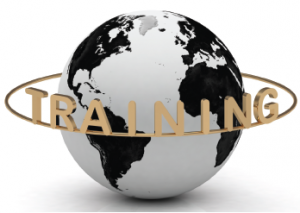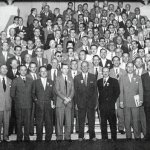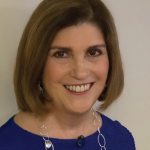 SAN DIEGO—Rheumatologists train in quite different ways depending on their global region, said panelists at a session sponsored by the International League of Associations for Rheumatology (ILAR) held at the 2017 ACR/ARHP Annual Meeting in San Diego on Nov. 7. Four association presidents shared training disparities and efforts to bridge gaps.
SAN DIEGO—Rheumatologists train in quite different ways depending on their global region, said panelists at a session sponsored by the International League of Associations for Rheumatology (ILAR) held at the 2017 ACR/ARHP Annual Meeting in San Diego on Nov. 7. Four association presidents shared training disparities and efforts to bridge gaps.
EULAR: Consistency Challenges
The European League Against Rheumatism (EULAR) has 45 member societies, and the training requirements for each country are quite different, said its president, Hans Bijlsma, MD. EULAR covers 27 European Union (EU) nations, as well as Israel, Lebanon, Norway, Serbia and others. “If you are a rheumatologist in one of the EU countries, you’re automatically a rheumatologist in all EU countries. Therefore, we have tried to do a lot of work to harmonize the training of rheumatologists all over Europe. But it’s not working as well as we thought,” he said. A 2015 cross-sectional study of rheumatology training programs across Europe revealed wide disparities.1 Four countries—Cyprus, Iceland, Montenegro and San Marino—have no rheumatology training, so trainees there must study elsewhere, said Dr. Bijlsma.
Programs vary in length from three months in Ukraine to six years in France, which does not require internal medicine training before specialty training. In most EU countries, up to three years of internal medicine are mandatory before rheumatology-specific training begins. Most programs’ curricula cover disease-specific education well, but disparities exist in practical-skills training, such as soft-tissue injections or densitometry, he said. Most trainees in Europe “have confidence in their ability to perform the core competencies, but a significant proportion of trainees still have limited practical experience,” which needs to be addressed, he said.
“Despite the fact that we have an EU curriculum, it doesn’t really work that way,” said Dr. Bijlsma. “The harmonization of specialist training across Europe is essential to support the free movement of medical specialists.”
APLAR: Defining Excellence
Training disparities are also a challenge for the 31 national societies of the Asia Pacific League of Associations for Rheumatology (APLAR), said Kazuhiko Yamamoto, MD, its president. APLAR’s member society in Australia is leading a new project to strengthen rheumatology training in Cambodia, which has few hospitals and only one major health sciences university. “This training program will include ward rounds, case-centered education, small group tutorials and joint injection workshops,” he said.
In 2016, APLAR also launched its Centers of Excellence program, which certifies both public and private centers with rheumatology training programs who demonstrate high standards in two of three pillars: research, patient care, and education and training. Centers must apply for the three-year certification, which is awarded to three to five institutions each year.
“Certification as a Center of Excellence indicates that it has high clinical research standards, supports physicians in clinical and research best practices, and shares perspectives on clinical trial management,” said Dr. Yamamoto.
PANLAR: Embracing Technology
Across North, South and Central America, “we don’t have enough rheumatologists. So we have to think in other ways to attend all of the people with rheumatic diseases,” said Carlo V. Caballero-Uribe, MD, PhD, president of the Pan-American League of Associations for Rheumatology (PANLAR), which has 21 member societies.
In Latin American medical schools, “traditional lectures are the top method of choice to teach rheumatology to trainees,” said Dr. Caballero-Uribe. Challenges include a shortage of independent medical education programs, language and financial barriers. “Also, we are dealing with a new generation of young residents [who] talk a different language.” Young doctors want to use technology to learn, he said.
In 2015, PANLAR surveyed its members and found that “more students use search engines than university medical databases to look for rheumatology information. Also, mobile devices are used more than laptops to look for information in rheumatology and other medical areas,” he said.
PANLAR uses social media hashtags to expand access to free rheumatology training videos and materials to students in underserved areas. Trainees search for hashtags, such as #RheumEd, #RotReuma and #FOAMed, which stands for free open access medicine.
#PANLAREdu alerts users to a series of 12 monthly, on-demand rheumatology training webcasts. “It’s a free program that’s designed to close the gaps in rheumatology knowledge across the continents,” he said. Another free online rheumatology training program in Spanish, Reumati.co, offers interactive, case-based instruction on such topics as ultrasound and capillaroscopy. PANLAR also offers a social media primer on its website.
“We need to present social media as a teaching opportunity, keep our minds open and always ask for students’ feedback,” he said. “We need to think about the future of our specialty and make it more attractive to the next generation. Only by embracing innovation can we move forward and contribute to a truly global rheumatology.”
AFLAR: Awareness & Access
Rheumatology training disparities are only one challenge in the 20 nations in the African League of Associations for Rheumatology (AFLAR), said Olufemi Adelowo, FRCP, MACR, its president.
“Africa is underserved in the number of rheumatologists. South of the Sahara Desert, in totality, has perhaps less than 50 rheumatologists,” he said. Many African countries have both a shortage of medical institutions and poor facilities for training doctors. “Another challenge is the lack of awareness about rheumatic conditions in general. In many countries in Africa, people assume that arthritis is just one disease.”
To measure disparities, AFLAR sent questionnaires to five of its member countries: South Africa, Nigeria, Algeria, Kenya and Ghana. Programs ranged from nine years of post-medical degree specialty training in South Africa to three years of specialty training in Ghana. In both Ghana and Kenya, physicians are sent to other countries for rheumatology training.
Training modalities and assessments differ widely across Africa, said Dr. Adelowo. Many trainees use the EULAR online course, as well as self-learning, logbooks, journal clubs and traditional lectures. In Nigeria, trainees must write a dissertation, and complete oral and multiple-choice exams. In South Africa, no dissertation is required, but trainees pass a written examination.
“What are our challenges? We need to know what to emphasize in the training of our rheumatologists,” he said. In current programs to train rheumatologists in Africa, it is possible “that we would sacrifice quality for quantity, because we need more generalists in our hospitals and private practices to manage our patients.”
Susan Bernstein is a freelance journalist based in Atlanta.
Reference
- Sivera F, Ramiro S, Cikes N, et al. Differences and similarities in rheumatology specialty training progammes across European countries. Ann Rheum Dis. 2016 Dec;74(6):314.


